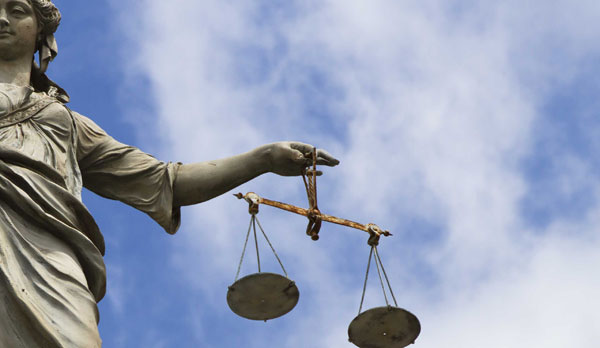By Jessica Magee
A blind homeless woman who stole around €40,000 in welfare benefits from the State has walked free from court after being handed a fully-suspended sentence.
Rosemarie Fearsaor (39) also known as Maria Rosita Apacha Marchega, was representing herself in court as she said she had could not get any solicitor or barrister to take her case.
She pleaded guilty last year to five sample counts on the indictment but later stated that she wished to change her plea to one of not guilty. Derek Cooney BL, prosecuting, said the DPP had not been notified of any indication of a changed plea.
Passing sentence at Dublin Circuit Criminal Court today, Judge Martin Nolan said this was a long-running case which had been adjourned on 14 occasions.
He said the accused had not been co-operative with the legal process, but seemed to be “quite intelligent”, “ingenious” and “eccentric”.
Judge Nolan imposed a three-year sentence, which was suspended in full on strict conditions including that the accused enter a bond to keep the peace.
Fearsaor interrupted Judge Nolan several times while he was passing sentence.
She initially refused to accept the conditions of the bond and was warned by Judge Nolan that she would be taken into custody.
The accused later agreed to abide by the bond when it was put to her using the name Maria Rosita Apacha Marchaga.
It is the State’s case that between 2011 and 2015, Ms Fearsaor received over €40,000 in various social welfare payments from the Department of Social Protection in Ireland, while at the same time claiming benefits worth over £50,000 sterling in the UK.
The State also alleges that the defendant used the name of Maria Marchaga to claim payments from 2011 to 2015, and then attempted to apply for a PPS number in 2015 under the name Rosemary Fearsaor.
When officials realised that there were two blind women giving the same address at an apartment in Moylara, Balbriggan, Co Dublin, they investigated and realised that it was the same person.
Sergeant Michael McGreal of the Department of Social Protection told the court that in October 2003, a woman using the name Maria Rosita Apacha Marchaga applied for asylum in Ireland using a false passport purporting to be Peruvian.
She was given a temporary resident certificate but the following year in 2004, the asylum application was withdrawn, the court heard.
Sgt McGreal said that Ms Marchaga then disappeared from the system until 2011, when she applied again for asylum and again was given a temporary residency certificate and a PPS number.
She applied for the Blind Persons’ Pension and was deemed eligible for this and for ancillary payments including rent allowance.
Sgt McGreal said that in 2014, Rosemary Fearsaor applied for and was given a birth certificate, using a false baptismal cert referring to a church in Cork which has never existed.
Gardaí searched a caravan in Streamstown, Malahide, Co Dublin where Fearsaor stayed temporarily and found a receipt from Nat West Building Society showing payments from the UK Pensions Department totalling £50,660 sterling.
Gardaí also found blank birth certs and baptismal certs, along with various documents under both names in the mobile home.
Fearsaor was arrested and initially denied she was either Ms Marchaga or Ms Fearsaor, insisting that someone else was claiming the payments.
CCTV footage was shown of her claiming the payments, and gardaí asked her, “Did you pretend to be Maria Rosita Apacha Marchaga?”
The woman replied: “I am Maria Rosita Apacha Marchaga, formerly known as Rosemary Hughes, Rosemary Fearsaor, Rosemary Joyce, Rosemary O’Toole, Rosemary O’Brien – there are multiple names.”
The woman added: “It was a defence mechanism for when we were picked up by the police; we were taught to always say we were older than we were.”
When gardaí asked her what was her real name, she replied: “I don’t fucking know.”
Sgt McGreal said he did not believe the woman was Rosemary Fearsaor or that she came from Peru.
Fearsaor became upset in court and she said she had never been given access to the Book of Evidence.
This was disputed by Mr Cooney who also told the court that at one stage the defendant had been assigned both junior and senior counsel to defend her.
An advocate for Fearsaor said she had been diagnosed with PTSD and fibromyalgia and that she found court experiences very stressful.
Fearsaor said she had no knowledge of having a UK account with £50,000 sterling in it and told the judge that that someone was using her identity to this day.
She said she is living in emergency accommodation and has been long term homeless since she was 15 years old.
Fearsaor told the court that she had no interest in the money and had pleaded guilty under duress.
She said she could provide evidence of her innocence and intends to appeal the conviction.
Judge Nolan also directed that inquiries should be made with the UK authorities in relation to the £50,000 and if possible, this should go to the Irish State which remains at a “loss in a considerable way” due to the accused’s actions.
